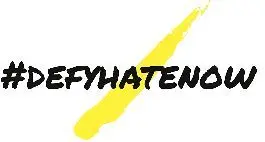
By Tchengang Tchiengue Donald
Worldwide, it’s estimated that more than 70% of people with an internet connection use one or more social media sites at least once a day. This reality is gradually taking shape in Cameroon, where social media are taking center stage in people’s lives and are likely to remain there for some time from now. Today, the considerable role played by social media is prompting us to reformulate the way we understand and address contemporary social, political, economic, cultural and even ecological issues. The Russo-Ukrainian crisis in Europe, the Arab Spring in the Maghreb and the Anglophone crisis in Cameroon provide ample evidence of their central, even driving, role in the movements that are profoundly shaking up our societies.
This new form of “virtual” socialization or remobilisation goes hand in hand with the growing vulnerability of Internet users to the manipulation of information and the recent proliferation of Artificial Intelligence (AI) tools enabling anyone to fabricate content so that it matches reality without actually being reality; thus making the fight against disinformation and fake news more complex. This situation raises the problem of how to protect Internet users from the damaging effects of fake news and, by extension, hate speech, without infringing their right to express themselves freely and their right to privacy. Or how to guarantee and promote democracy and transparency while regulating the use of social media.
Given this alarming situation, the practice of fact-checking stands out as a significant contribution to demystifying false narratives so that the public is informed by the truth – and not by fiction – in order to make informed decisions for effective citizen participation in the consolidation of the architecture of peace. With this in mind at defyhatenow, we are launching the first wave of training for fact-checking professionals in 2023, the 8th cohort of the Africa Fact-checking Fellowship program.
#AFFCameroon: #defyhatenow’s contribution to democracy, peace and transparency
Fact-checking is a powerful tool for promoting democracy and transparency/accountability in Cameroon as well as elsewhere in Africa. By accurately verifying claims and publicly challenging false or misleading information, citizens can make informed decisions about their political leaders and institutions. This is particularly important in a country like Cameroon, where mistrust of the government is growing and public discourse can be sharply divided. On the other hand, the authorities have the capacity to make fair and informed decisions based on true and credible information. In this sense, fact-checking makes it possible to combat hate speech and disinformation campaigns that threaten the integrity of the State. The more people actively participate in the verification process, the greater the responsibility of social media platforms and governments.
Fact-checking also encourages people to seek out reliable sources of information and engage in constructive conversations online rather than falling prey to fake news or unfounded rumours.
Furthermore, our aim through #AFFCameroon is to train fact-checkers who contribute to accountability by holding politicians and authorities to account for their words and actions. This ensures that those in power are bound by the same laws and rules that apply to everyone. It is also an opportunity to mitigate any risk of giving power or influence to those who would seek to mislead public opinion through lies, manipulation or disinformation campaigns. The troubles in Sangmelima in recent years provide further evidence of the need to educate the masses and increase the number of fact-checkers in order to limit the manipulation of information that can lead to violence and social disorder.
8th cohort of Africa Fact-checking Fellowship at the test of AI
In recent years, the need for fact-checking has become apparent in Cameroon in a national context marked by the Boko Haram security crisis, the so-called Anglophone crisis since 2016, the 2018 post-electoral crisis and the Covid-19 pandemic. While the public and the media are beginning to grasp the challenges of disinformation, the democratization of the use of AI and big data requires fact-checkers to update techniques and tools that can help them debunk false information more easily. In view of the unknown that AI represents, it’s important to anticipate the potential threats that this revolutionary progress could have on social cohesion and peace in developing countries such as Cameroon, where the rate of internet penetration and media and information literacy among the population are still marginal. Our fellows will therefore be alerted to their key role in detecting and countering the effects of the misuse of AI.
As a result, from this 15 June 2023, the 8th cohort will begin with face-to-face training for these 30 fellows for a period of 3 months (June – July – August), during which they will be called upon to immerse themselves in methods and techniques in fact-checking, online data collection and analysis, community engagement and awareness-raising against disinformation and hate speech. The fellows’ work will be monitored and published on our dedicated platform www.237check.org.

